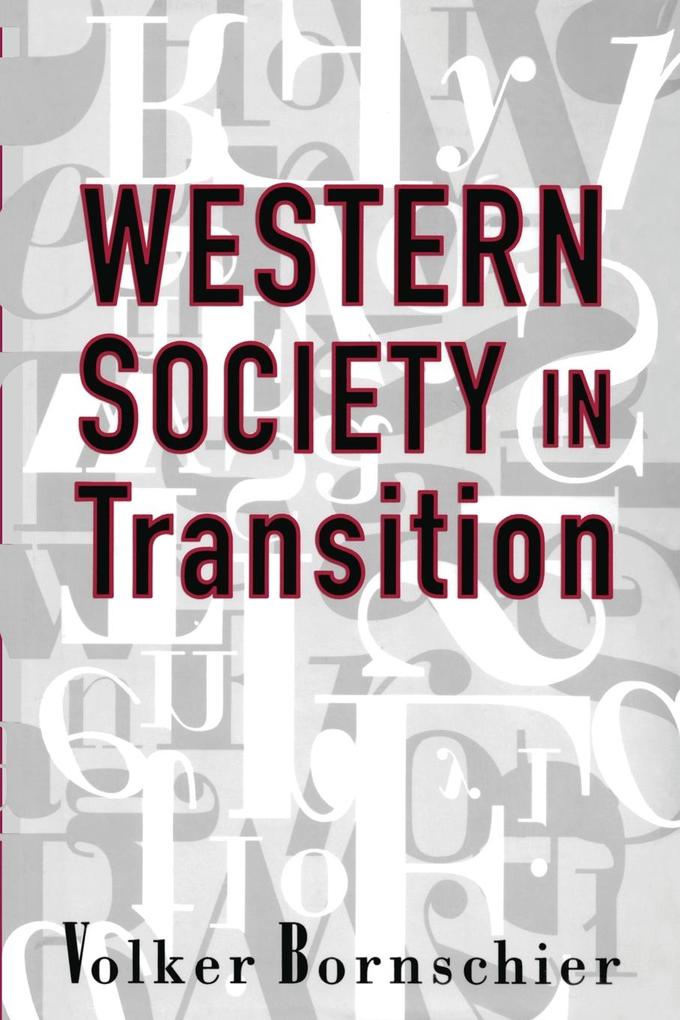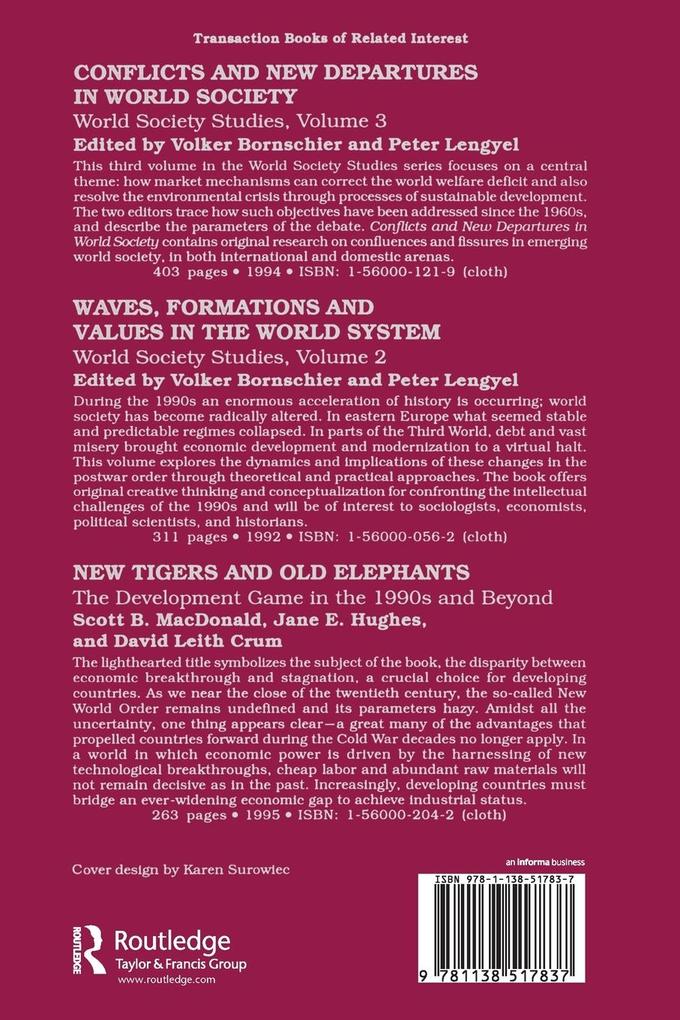
Zustellung: Do, 24.07. - Mo, 28.07.
Versand in 5 Tagen
VersandkostenfreiBestellen & in Filiale abholen:
Western Society in Transition examines the succession of societal models of the Western world and indications of its probable shape in the future. Bornschier characterizes the 1985-1995 period as a decade of Third World debt and depression; continued economic decline in the United States; a steady ascent of Japan; Western Europe's move toward political union, and the collapse of the Soviet Union. Against this background, he sketches various elements of a theoretical perspective he calls evolutionary conflict theory.
Inhaltsverzeichnis
Introduction and Overview The Argument Spelled Out Principles of Social Structures and Their Institutional Manifestations The Regulative Impact of the World Market Waves and Cycles as Modes of Change Discontinuities and Their Links Technological Styles Politico-economic Regimes The Societal Model and its Career Shaping Institutional Orders The Artificial Person and Structures of Economic Power Schools and the Myth of Equal Opportunity The Torturous Paths of Capital and State Evolution Convergence in the West? Convergence and Persisting Differences Japan: Any Lessons for the West? Legitimacy and Comparative Advantage Present Transformations and Future Competitive Edges Cornerstones of a New Societal Model Hegemonic Conditions without a Hegemon
Produktdetails
Erscheinungsdatum
16. April 2018
Sprache
englisch
Seitenanzahl
464
Autor/Autorin
Volker Bornschier
Verlag/Hersteller
Produktart
kartoniert
Gewicht
667 g
Größe (L/B/H)
229/152/25 mm
ISBN
9781138517837
Bewertungen
0 Bewertungen
Es wurden noch keine Bewertungen abgegeben. Schreiben Sie die erste Bewertung zu "Western Society in Transition" und helfen Sie damit anderen bei der Kaufentscheidung.










